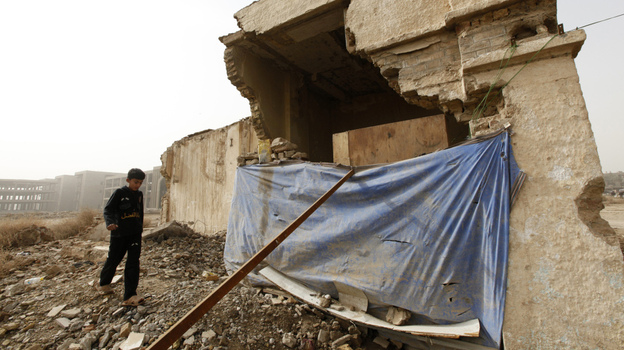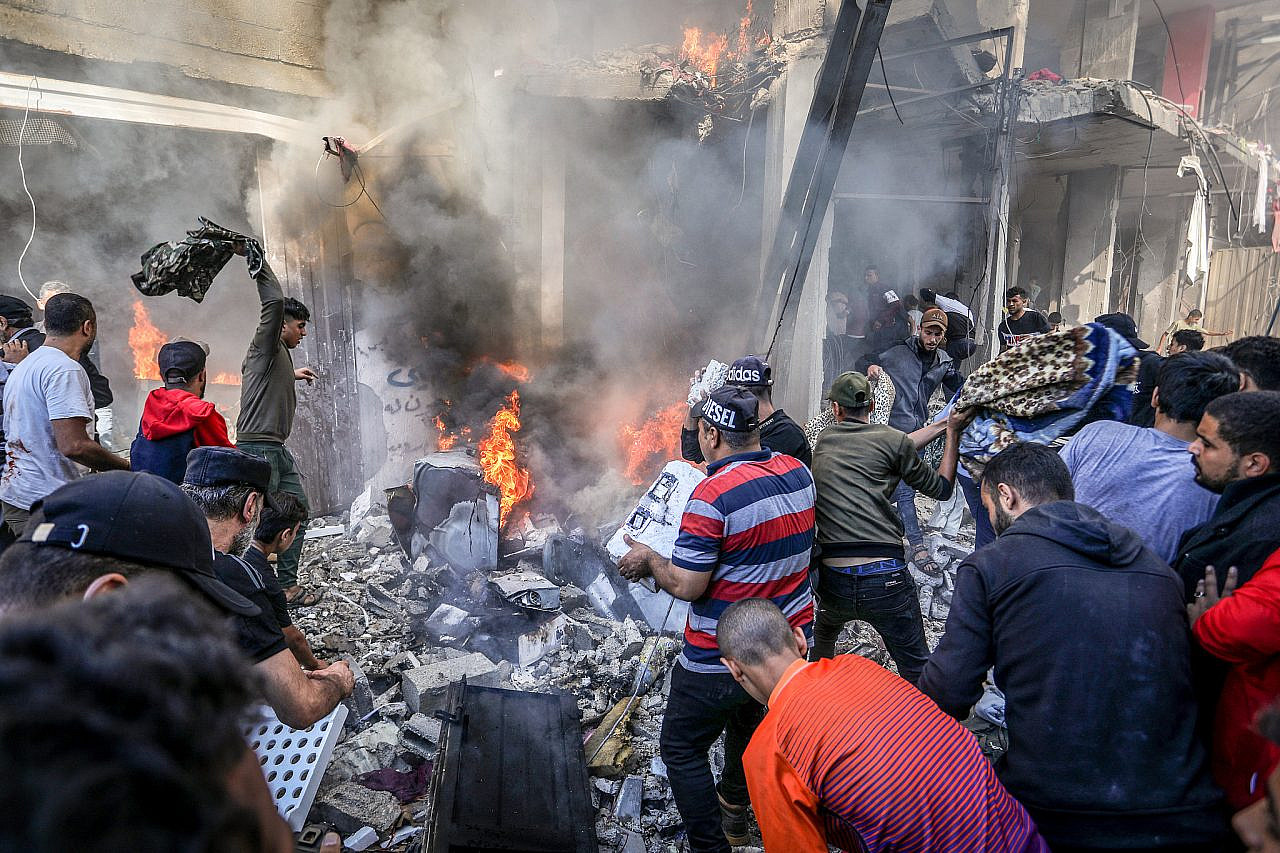 Nadia Karim Hassan says she stayed in her Baghdad neighborhood as long as she could, but by the height of the sectarian war in 2007, too many fellow Shiites were getting killed, and she had to leave the area and move into an abandoned building.
Nadia Karim Hassan says she stayed in her Baghdad neighborhood as long as she could, but by the height of the sectarian war in 2007, too many fellow Shiites were getting killed, and she had to leave the area and move into an abandoned building.
As American troops pull out of Iraq, one of the most striking consequences of the war remains unresolved today: the issue of people who were forced out of their homes and still can't go back. Relief organizations estimate there are some 2 million displaced people inside Iraq.
Hassan has a lawyer who works pro bono for the International Rescue Committee, where it's policy not to reveal the names of local staff.
The lawyer is basically trying to prove that Hassan exists. Because Hassan lives as a squatter, she has no documents — no proof of residence, no marriage contract. The list goes on and on.
It will take about a month to get just one of these documents, Hassan's lawyer says.
Without them, Hassan's son, Akram, can't go to school or to a government hospital.
Hassan is one of 500,000 people who live as squatters in Iraq.
Laura Jacoby is the Iraq director for the International Rescue Committee. She says most squatters live in makeshift camps, hundreds of which are in plain sight, scattered around the capital, Baghdad.





 The United States will mark the 84th anniversary of the Japanese attack on the U.S. naval...
The United States will mark the 84th anniversary of the Japanese attack on the U.S. naval... In 2021, a book titled “The Human-Machine Team: How to Create Synergy Between Human and Artificial...
In 2021, a book titled “The Human-Machine Team: How to Create Synergy Between Human and Artificial...:focal(1285x1016:1286x1017)/https://tf-cmsv2-smithsonianmag-media.s3.amazonaws.com/filer_public/d1/4e/d14ed238-3b62-4506-9f53-fc2178dade60/nov2025_d17_prologue.jpg) In the fall of 1945, a bit more than six years after Nazi Germany invaded Poland...
In the fall of 1945, a bit more than six years after Nazi Germany invaded Poland... The last plane carrying U.S. forces left Afghanistan on Monday, meeting an Aug. 31 deadline to withdraw...
The last plane carrying U.S. forces left Afghanistan on Monday, meeting an Aug. 31 deadline to withdraw...






























